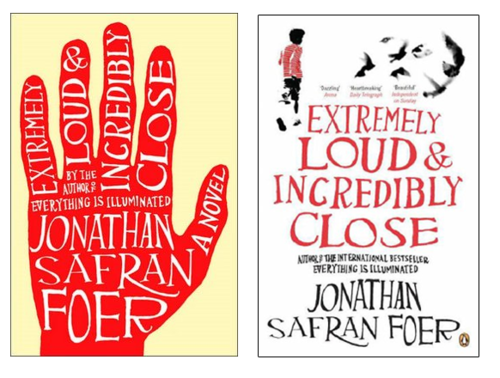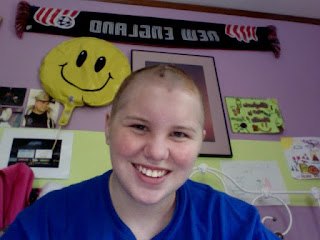This was my third experience with Open Books Open Minds. When I was a freshman back in fall of 2009 I was required to read Extremely Loud and Incredible Close by Jonathan Safran Foer. I don't remember much about it but like I do for most of my reading I bought the audio file for it and I do remember it was odd.
Since then it has been made into a movie:
So fast forward to my Junior year in the social work program. During our research course with Professor Weismann - which I hated at the time but am now so grateful that I took we had to read the 2012 OBOM book: The Immortal Life of Henrietta Lacks by Rebecca Skloot. Great read!!!
I
Plus:
Again lets fast forward to tonight. The Brief Wondrous Life of Oscar Wao by Junot Diaz. After reading the plot summary the stories made more sense.
- I was able to connect the retelling of difficult life events to todays class when we either wrote or discussed the people who were most influential in constructing who we are. I loved that I could related to at least one piece in every story.
- In Nancy's story about her families engagement ring - it made me laugh since I have more recently been pestering Matthew for one.
- I wanted to get up and either give a hug to or find a box of tissues for the woman who lost her dad when he fell overboard.
- And I related to the guy who because his parent's parent.
- But the two that really spoke to me the most were Thanksgiving in December. Mostly because this is a tradition that my family does at well. Not so much because I am of the same culture that she is but because my family is from all over the world. So whenever we are all together no matter what time of year it is we celebrate a Thanksgiving dinner with all the fixings - it is super difficult to find a full turkey in Germany in July just for future reference.
- The other story that really meant a lot was I Am Ill. This woman didn't even know me but it was as if she was describing my entire situation by saying how I don't look sick but I am. It truly hit home and made me feel good that there are other people who know a bit of how I feel.
Things I noticed so Delta?:
- I liked hearing how the discourse and verbiage was different with every speaker. It made it much more unique and for me I was able to connect with that person and their story because they wrote "without a filter".
- I wish that the speakers worked on their eye contact. For me especially eye contact is super important and there wasn't any one speaker who kept me engaged which with working with youth is again super important.
- Along with eye contact I wish the speakers were more confident. It's fine and dandy for me to say that but especially with a piece they work they should be proud of their work and it should show.
- They should have practiced more - maybe it was because they were nervous but the more I practice the more I know my material front and back so that I can make eye contact and am 100% confident in it and me.
- I was upset by some of the people who were there listening. I understand kids being kids, but it drives me absolutely insane when I look over and see someone sitting with their eyes closed while someone is presenting. How hard is it to pay attention?
I am glad that the OBOM still continues and would love to be able to create some sort of program like this at my future job.
Connection:
I can relate it to The Construction of Adolescence because again, it was people telling what or who influenced them into who they are today.











